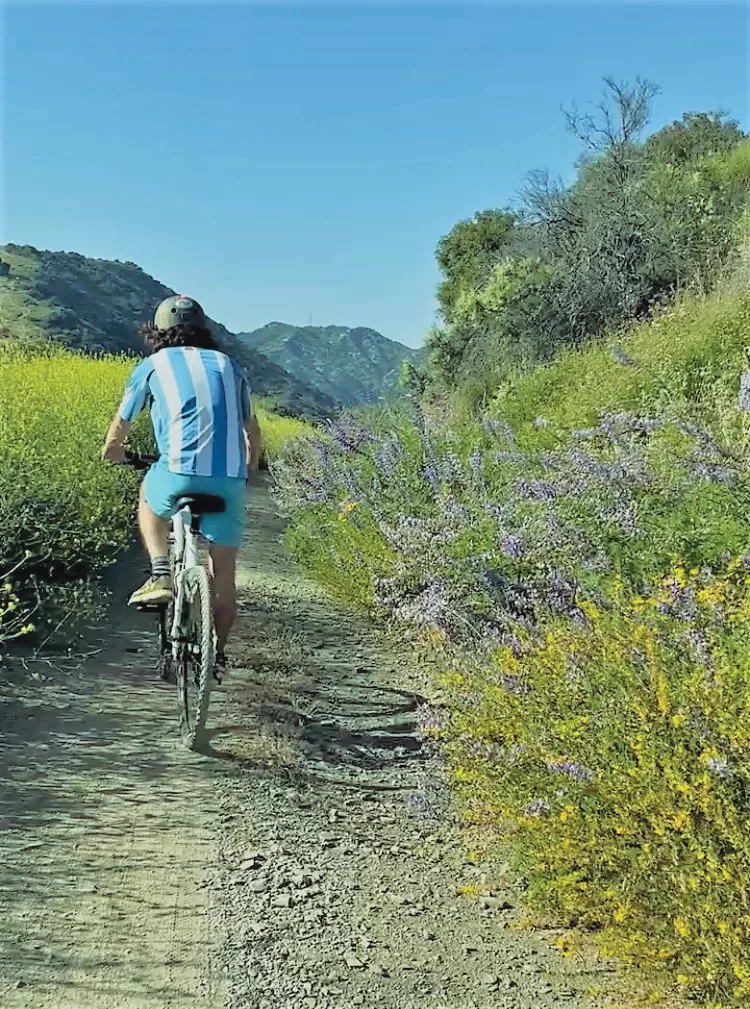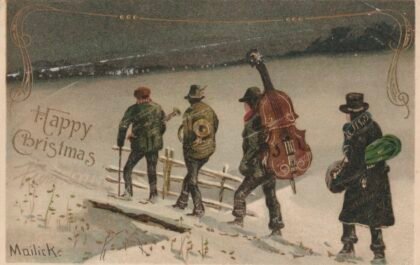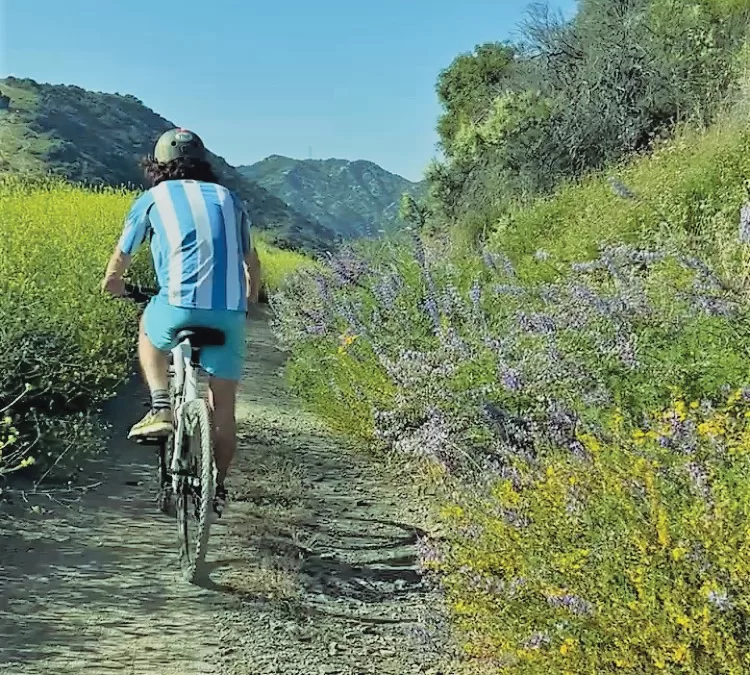
I don’t yet drive but I’ve been driven plenty, and my drivers often subscribe to a creed that goes something like this: The road’s too small for cars and cyclists to coexist. The car is the fastest mode of ground transportation, and therefore the superior mode. Thus, cyclists must go.
I know this vigorous strain of sanctimony is learned rather than inborn because I spent my Topangan childhood in the back seat surviving skin-of-the-teeth passes on Fernwood Pacific Dr. that made me one minute late to everything; from that seat, I picked up on the connection between anger and cyclists; and inevitably, it seems, I started feeling the same as the car drivers. These feelings came on slowly. One pass was a nuisance, but a pass a day, every day (at least!)—that added up to a lot of passes, enough to add an element of cumulative danger.
Odds are a pass is nothing more than a nuisance. These aren’t overwhelming odds, though; a good percentage of passes turn out to be hair-raising occasions. Imagine: it’s been a below-average day at work, and you want nothing more than to be home as soon as you can (maybe, upon deep reflection, you’re actually looking forward to unwinding by speeding), but no: there’s a horde of cyclists ahead, beetling up the hill. They’re so immersed in solipsistic pleasure that, inching behind them, you have to rev the engine to assert your presence. Finally the horde takes note of your pathetic revs and magnanimously moves to the right a couple inches which gives you precisely the space of your axle-width to work with, but you’ve been so busy wondering whose numbskull’s idea was it over at Caltrans to build the road this way that you fail to register the churning of a cement mixer attached to a juggernaut of a truck on the switchback above, and just as you sail through the goalposts, fully on the wrong lane of the narrow two-way, the consequences of that unfold. You panic. Your engine blisters, and those in the back seat are pinned down like astronauts in a rocket blasting off. Now trying to make up for lost time, you throttle it, but it ain’t long before you slam right into another horde. Let’s be honest here: if it weren’t for the Golden Rule and other ethical inconveniences, you’d floor the cyclists just like you’d floor the gas.
It was easy to pin my dislike of cyclists to these kinds of encounters, but now I propose that beneath all that lies a reason still deeper. Non-cyclists and cyclists happen to neatly split into ‘us’ and ‘them,’ and it’s very easy to despise the nameless ‘them.’ In other words, car drivers dislike cyclists because they haven’t biked much themselves, and so feel no empathy for cyclists’ equally-harrowing hardships (which in fact, with respect to livelihood, parallel the driver’s).
It’s tempting to chalk up drivers’ abstinence from cycling to their sense of moral superiority—i.e. these drivers had the chance to cycle, but they’d never condescend to be a despicable cyclist—but perhaps it’s just the simple fact that the majority of bikes in the world don’t work the way they’re supposed to, or at all.
Such was the case with my bike, a casualty of the historic winter rains of ‘22-’23, consumed by rust and about as mobile as a statue. On a whim, I took my bike to the bike shop, where the shop owner introduced me to the Bike Repair Paradox, wherein getting my bike into tip-top shape would actually cost more than a new bike.
It was no easy feat to avoid the B. R. P. ‘s logically-fallacious pitfalls, against which common sense indignantly protests. I resisted checking out the new bikes on the walls and decided to restore mine, only because while the shop owner went through everything a full tune-up entailed, he further apprised me that a novice like me wouldn’t need or appreciate that tune-up. Whether I spent $1,000 or $100 on repairs, I wouldn’t be able to tell the difference, I was told; I really just needed the thing mobile. To my delight, I ended up spending less than either of those prices—just enough to get the wheels to move.
This was also my first exchange with a real cyclist. This bike shop owner was of the exceedingly but endearingly nerdy type. As he tuned the bike up, he gave me a play-by-play commentary so informative that if I had only paid more attention I’d probably never have to go to a bike shop again.
The fact is, I liked him. That stirred up quite a bit of cognitive dissonance, and some real unpleasantry it was, since in the end there remained the awkward truth that not long ago I would have categorized him as meat in my way.
I conjectured a few reasons for his decency: 1) he wouldn’t own and run a bike shop unless he loved bikes so much that he was content to spend his day just talking about them, 2) but he still did cycle in the mornings and was probably still feeling great from his morning ride, and 3) cycling’s a sport where you help your fellow out, because Lord knows there are enough people at the wheel out to get’cha.
He kept talking, and here’s an apparently well-known fact that I learned: Topanga is a world-class gravel-biking destination. Far from the pavement, meandering fire-roads wind into unknown valleys and mountain-goat trails climb peaks hitherto only on the horizon. I took the hint and set course for these gradients.
Out there, the uphills were tense silence, sounds made by me and suppressed by my unconscious, and the downhills streams of clicks, the pawl ticking time over the hump of summits, then modulating to a blur when I bombed a hill. Tufts of vibrancy, the kind on classroom color wheels, flecked the sun-shaded olive of the hills. Red-tailed hawks soared high, caught in the rays of a sunset far below. Thighs screamed. I threw my head back to a silent sky.
Most of these trails came to unglamorous ends, upchucking their contents onto streets that merged into boulevards. Turning onto the boulevard, I’d accelerate as quickly as possible, then swerve to avoid traffic, assimilating exhaust all the while. After enough of this, I realized a truth so stifled by my consumerist-default corporate-conditioned mindset that it rarely surfaces: the institutionalization of cars has made a perfectly acceptable, healthy, and dare I say admirable form of transportation a burden to society. Consequently, I now hate cars on principle.
But it’s more than an academic kind of dislike. The truth is, I wouldn’t be writing this if nearly getting pulped while on a bike doesn’t make me bristle every time. Some proto-part of me still insists that never mind the risk that the proverbial, nameless Topanga Cyn. car driver incurs, he threatens my inalienable right to life. I may be a novice, but at any rate I’m a cyclist now; naturally, I hate ‘them’ just as much as they hate ‘us.’ The constant revs at my back confirm these feelings are mutual, now and always.
Of course cars and cyclists could cooperate, wait to tango on a decently straight section and so endanger all lives as little as possible…but what sort of prisoner in a dilemma does that?






Great writing, Miles! Perhaps your abilities will come together some day in an original Opera or another type of musical theater.
Congratulations! Grandpa
Wonderful history written to get the full understanding of our history!!!!!!!